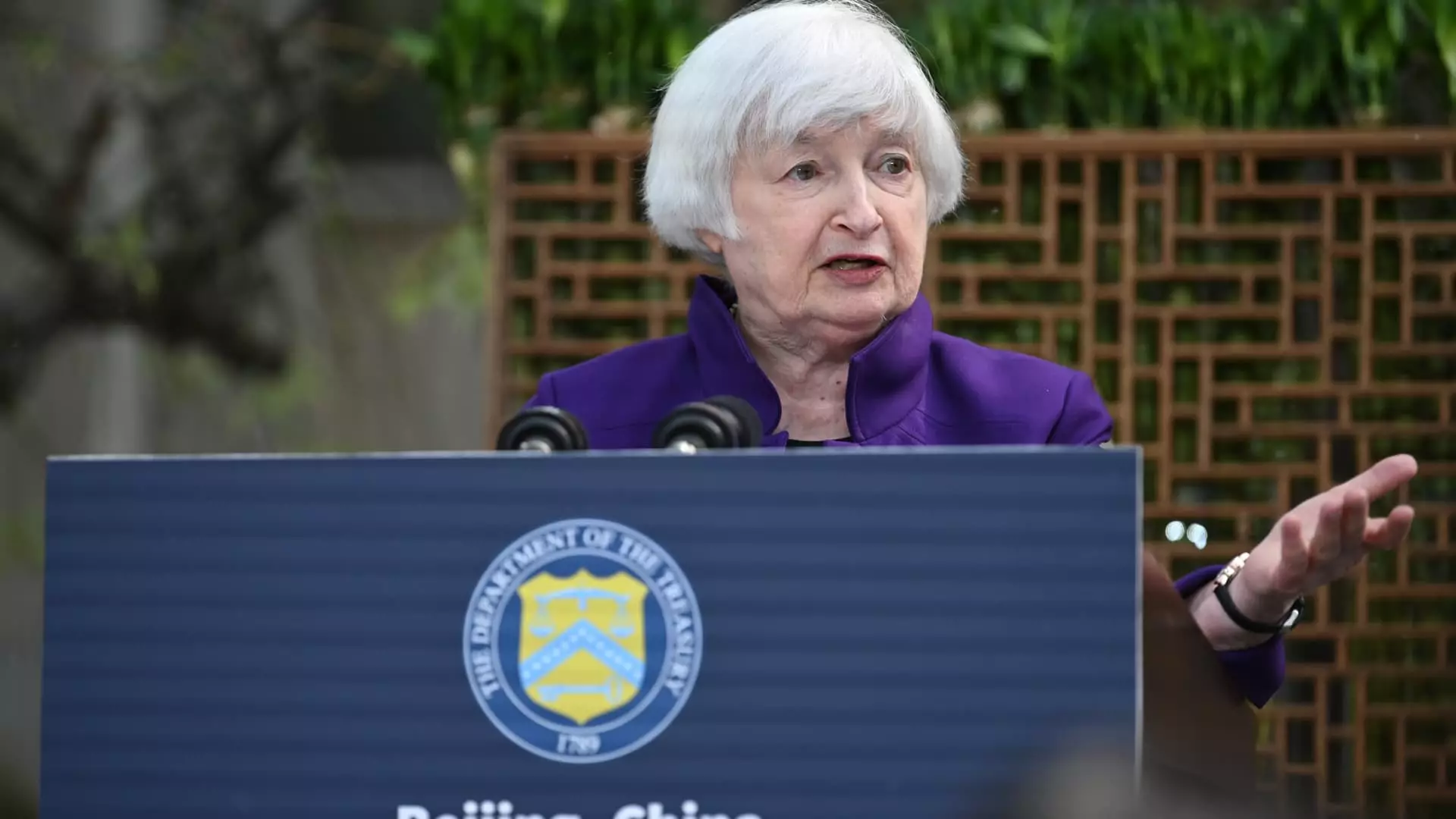In a recent statement, U.S. Treasury Secretary Janet Yellen stated that the United States is prepared to impose sanctions on Chinese banks, companies, and Beijing’s leadership if they assist Russia in its invasion of Ukraine. This warning comes as tensions escalate between the U.S., China, and Russia over the conflict in Ukraine. Yellen emphasized that any aid to Russia’s armed forces in their brutal war against Ukraine would be deemed unacceptable by the United States, and that they have the means to sanction those involved.
President Joe Biden issued an executive order in December that granted the Treasury Secretary the power to impose sanctions on financial institutions that support Russia’s military-industrial complex. Despite having this authority, Yellen mentioned that the Treasury Department has not yet used this tool. The aim of these sanctions is to deter any assistance to Russia that could prolong the conflict in Ukraine.
Yellen acknowledged that China is “entitled” to have a relationship with Russia, and that much of the trade between the two countries is typically viewed as nonproblematic by the U.S. However, she made it clear that providing military aid from Beijing to Moscow could trigger sanctions from the United States. Yellen has been engaging with Chinese officials during her visit to China, delivering a tough economic message that prioritizes U.S. interests while also aiming to stabilize the diplomatic relationship between the two global superpowers.
During her visit, Yellen raised concerns about Chinese overcapacity in the green energy industry, specifically in areas such as solar panels, electric vehicles, and lithium-ion batteries. The U.S. has accused China of providing government subsidies for these products that far exceed domestic demand, potentially leading to dumping of surplus products in global markets. This practice could harm other companies and disrupt the balance of trade.
Yellen did not rule out the possibility of imposing higher tariffs on Chinese imports if China does not address the concerns raised about overcapacity in the green energy sector. This issue adds to the numerous trade tensions that have defined the U.S.-China relationship in recent years, with former President Trump initiating tariffs that disrupted economic and trade cooperation. Despite efforts by President Biden to thaw relations, the threat of tariffs still looms depending on China’s response to U.S. concerns.
Following a meeting between President Biden and Chinese President Xi Jinping last November, Yellen expressed optimism about the current state of the economic relationship between the two countries. She emphasized the need for high-level communications and cooperation to address issues such as trade tensions and overcapacity in the green energy industry. Yellen’s visit to China served as a platform to convey the United States’ economic priorities while seeking to find common ground with China on various trade-related issues.
The threat of sanctions on China for assisting Russia in Ukraine, coupled with concerns about overcapacity and trade tensions, highlights the complex dynamics at play between the United States, China, and Russia. As global economic forces continue to shift, diplomatic efforts and strategic decisions will be crucial in shaping the future of international relations and trade.

Leave a Reply